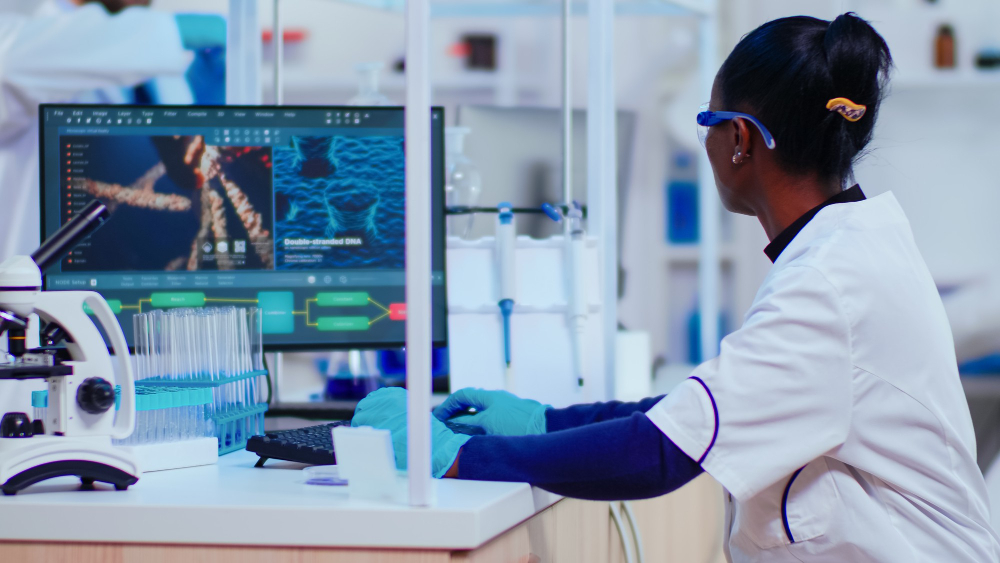BIO 310 – Pathophysiology and Pharmacology is an essential course for nursing students and those pursuing careers in the health sciences. This course serves as the foundation for understanding human anatomy, physiology, and the pharmacological interventions used in healthcare. It combines in-depth studies of the body’s structures and functions with an exploration of diseases and the medications used to treat them. Given the critical nature of this subject in the field of healthcare, students often seek expert guidance to excel in the coursework, which is why our website, GPAShark.com, provides comprehensive assignment help to support students through this rigorous course.
Table of Contents
Key Areas Covered in BIO 310 – Pathophysiology and Pharmacology
The course content is divided into two major sections: Pathophysiology and Pharmacology. Together, they form the backbone of clinical nursing education by focusing on both the body’s normal functions and how diseases alter these processes, as well as how medications can be used to manage or cure these conditions.
1. Human Anatomy and Physiology
In BIO 310, the foundational knowledge of human anatomy and physiology is key. Students begin with a study of the animal cell structure and function, covering important topics like cell division, cell chemistry, and metabolism. Here, students learn about the microscopic processes that take place within each cell and how they contribute to the overall function of organs and systems.
2. Tissues and Organs
Students also delve into the various tissues that make up the human body, such as epithelial, connective, muscle, and nervous tissues. Understanding the roles these tissues play in maintaining the body’s internal environment is essential for comprehending how diseases (pathologies) develop.
3. Skeletal System
The skeletal system is another vital topic in this course. Students study the bones, cartilage, and ligaments that form the framework of the human body. They explore the anatomy of the bones, as well as the physiology of bone growth, repair, and the impact of aging on the skeletal system.
4. Nervous System
BIO 310 also covers the nervous system, focusing on how neurons transmit signals throughout the body to control both voluntary and involuntary actions. Students learn about the intricate functions of the brain, spinal cord, and peripheral nerves. This section also touches upon neurological diseases and conditions, which is important for understanding the pharmacological interventions covered later in the course.
5. Aging and Disease
Another crucial aspect of BIO 310 is the focus on how aging impacts the various systems of the body and how diseases develop over time. Understanding these processes is essential for nursing students, as they will frequently encounter elderly patients with age-related diseases like osteoporosis, arthritis, and neurodegenerative diseases.
Pharmacology: Managing and Treating Disease
1. Cellular Metabolism and Drug Action
In the pharmacology section of BIO 310, students explore how medications interact with the body at a cellular level. Cellular metabolism plays a crucial role in how drugs are absorbed, distributed, metabolized, and excreted (ADME). Students learn about different drug classes and their mechanisms of action, helping them understand how to select appropriate pharmacological interventions based on the patient’s disease state and metabolism.
2. Pharmacokinetics and Pharmacodynamics
Two essential concepts in pharmacology are pharmacokinetics and pharmacodynamics. Pharmacokinetics refers to the journey a drug takes through the body, from ingestion to elimination. Pharmacodynamics focuses on the drug’s effects on the body and how it achieves its therapeutic effects. Understanding these concepts is critical for nurses to administer medications safely and effectively, taking into account individual variations in metabolism, age, and disease states.
3. Medication Safety and Side Effects
Safety is a major focus in pharmacology, particularly when it comes to understanding the side effects and adverse reactions of medications. Students study drug toxicity, drug-drug interactions, and the role of the nurse in preventing medication errors. This is particularly important in the treatment of chronic diseases, where patients may be on multiple medications with potentially harmful interactions.
4. Disease-Specific Medications
A significant portion of pharmacology focuses on drugs used to treat specific diseases, such as antibiotics, antihypertensives, chemotherapeutic agents, and insulin. Students learn how to choose the appropriate medication based on the patient’s condition and how to adjust dosages for special populations like children, the elderly, and those with compromised liver or kidney function.
Instructional Modes in BIO 310 – Pathophysiology and Pharmacology
BIO 310 employs a variety of instructional modes to enhance learning and ensure students gain a thorough understanding of both anatomy and pharmacology. These modes include:
- Lectures: Traditional lectures provide foundational knowledge and explain complex concepts related to disease processes and medication action.
- Laboratory Exercises: Lab sessions allow students to observe and practice anatomical dissections and experiments related to physiological processes. These hands-on experiences solidify students’ understanding of the human body’s structures and functions.
- Research and Presentations: Students are encouraged to investigate specific diseases or medications and present their findings to their peers. This fosters critical thinking, research skills, and the ability to communicate complex medical concepts clearly.
- Class Discussions: Discussions are often held to share research findings and collaborate on case studies, enhancing students’ understanding of pathophysiology and pharmacology in clinical settings.
Why Nursing Students Need Assignment Help for BIO 310 – Pathophysiology and Pharmacology
Due to the complexity of the topics covered in BIO 310, nursing students often seek assignment help to ensure they excel in the course. From understanding the microscopic processes of the cell to mastering the pharmacological interventions for various diseases, the amount of information can be overwhelming. GPAShark.com offers expert guidance to students by providing custom assignment help, ensuring that they not only pass the course but also gain a deep understanding of the material that will be crucial for their future careers in healthcare.
Whether it’s writing a detailed research paper on a specific disease, solving case studies, or understanding the pharmacological implications of drug interactions, GPAShark.com supports nursing students through every step of their BIO 310 journey.
BIO 310 – Pathophysiology and Pharmacology Assignment Help Services
At GPAShark.com, we offer specialized assistance for BIO 310 – Pathophysiology and Pharmacology to ensure students excel in their coursework. Our services are designed to support various aspects of the course and include:
Essay Writing Services
We provide expert help in crafting well-researched, clear, and engaging essays on topics related to pathophysiology and pharmacology. Whether you need an essay on cellular metabolism, disease mechanisms, or pharmacological treatments, our team ensures that your essay meets academic standards and reflects a deep understanding of the subject.
Discussion Posts Writing Services
Our team assists in composing insightful and thought-provoking discussion posts that are crucial for online learning platforms. We help you articulate your thoughts on complex topics like drug interactions, disease processes, or clinical implications of pharmacology, ensuring that your posts are well-organized and contribute meaningfully to class discussions.
Lab Report Writing Services
For BIO 310 students who need to submit detailed lab reports, we offer comprehensive writing services. Our experts help you present your experimental findings, analyze data, and discuss results in a clear and methodical manner. We ensure that your lab reports are accurate, well-structured, and adhere to scientific reporting standards.
Case Study Writing Services
We support students in developing thorough case studies related to specific diseases, treatment protocols, and patient scenarios. Our services include analyzing case details, applying theoretical knowledge, and presenting well-supported conclusions. This helps you demonstrate your understanding of real-world applications of pathophysiology and pharmacology concepts.
PowerPoint Assignment Help
For presentations on complex topics such as disease mechanisms or pharmacological treatments, we provide professional PowerPoint assignment help. Our team creates visually appealing and informative slides that effectively communicate key concepts, research findings, and clinical implications. We ensure your presentation is engaging and meets academic standards.
FAQ on BIO 310 – Pathophysiology and Pharmacology Assignment Help
What types of assignments can you help with in BIO 310?
We offer assistance with a wide range of assignments for BIO 310, including essay writing, discussion posts, lab reports, case studies, and PowerPoint presentations. Whether you need help with a detailed essay on cellular metabolism, a thoughtful discussion post on pharmacological treatments, a well-structured lab report, a comprehensive case study, or an engaging PowerPoint presentation, our team is equipped to support your needs.
How do I request help with my BIO 310 assignments?
You can request help by visiting our website, GPAShark.com, and filling out the assignment request form. Provide details about your assignment, including the topic, specific requirements, and any deadlines. Our team will review your request and match you with an expert who can assist you effectively.
What qualifications do your experts have for BIO 310 assignments?
Our experts hold advanced degrees in fields related to biology, pharmacology, and health sciences. They have extensive experience in both academic writing and practical applications of pathophysiology and pharmacology. This expertise ensures that they provide accurate, high-quality support for your assignments.
Can you help with assignments involving complex lab reports or case studies?
Yes, we specialize in helping students with complex lab reports and case studies. Our team is skilled in analyzing experimental data, discussing results, and applying theoretical knowledge to real-world scenarios. We ensure that your lab reports and case studies are comprehensive, well-organized, and adhere to scientific standards.
How do you ensure the quality of your writing services for BIO 310?
We ensure quality through a rigorous process that includes assigning tasks to qualified experts, conducting thorough reviews, and providing revisions if necessary. Our writers adhere to academic standards and specific assignment guidelines to deliver high-quality, original content. Additionally, we use plagiarism detection tools to ensure that all work is original and properly cited.
RN Courses
- BIO 310 – Pathophysiology and Pharmacology
- CHEM 101 – General Chemistry
- MATH 215 – Introduction to Statistics
- NURS 300 – Transition to Professional Nursing
- NURS 301 – Health Assessment and Promotion in Nursing Practice within Culturally Diverse Populations
- NURS 302 – Health Teaching in Diverse Cultures
- NURS 303 – Caring for Patients, Including Diverse Populations, in their Communities
- NURS 313 – Nursing Informatics
- NURS 350 – Principles of Nursing Research
- NURS 461 – Global Health and Policy Issues: A Nursing Perspective
- NURS 499 – Nursing Capstone
Must Read:

